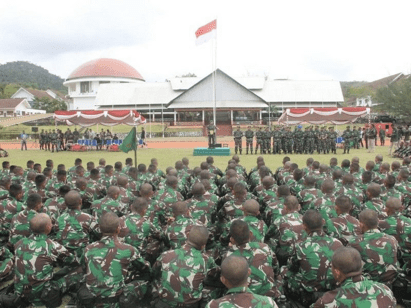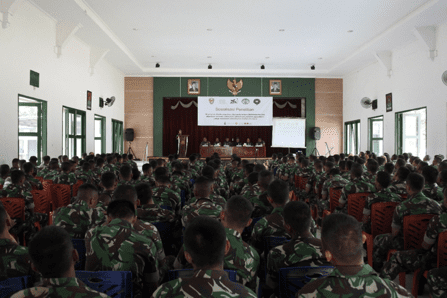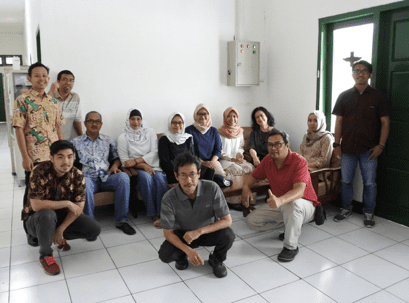Funders
Medicines for Malaria Venture, supported by Bill and Melinda Gates Foundation
UK Department for International Development
Newcrest Mining Limited
ExxonMobil
Principal Investigator
Professor Inge Sutanto
Location
Two sites in East Java, Indonesia
Duration
April 7, 201 – November 30, 2022
Plasmodium vivax malaria places a tremendous burden of morbidity on the over three billion people living at risk of this infection. More than 80% of acute vivax malaria attacks in endemic areas originate from dormant hepatic stages called hypnozoites (the cause of relapsing malaria), which results in significant morbidity, risk of early death, and onward transmission. P. vivax malaria remains a significant challenge to malaria control and elimination efforts globally.
The current standard of care for P. vivax malaria radical cure is chloroquine plus primaquine to clear the parasite’s liver stages and prevent disease relapse. Due to the widespread chloroquine resistance, artemisinin-based combination therapies (ACTs) have replaced chloroquine for the treatment of blood-stage disease in Indonesia. The Indonesian national treatment policy recommends the co-administration of dihydroartemisinin piperaquine (DHP) with primaquine (PQ) for the radical cure of P. vivax malaria.
Tafenoquine (TQ) is an antimalarial 8-aminoquinoline drug discovered and initially developed by the US Army and then in collaboration with GlaxoSmithKline and the Medicines for Malaria Venture. TQ is a synthetic analogue of primaquine developed as a single dose in conjunction with standard chloroquine therapy for the radical cure of P. vivax malaria. In contrast to the 14 days daily dosing with primaquine, single-dose of TQ offer the potential for very significantly improved compliance and effectiveness.

This pivotal trial, INSPECTOR, is intended to support an application for regulatory approval by the Indonesian authorities of TQ for a radical cure of vivax malaria in Indonesia. INSPECTOR evaluated the superiority of the safety, tolerability, and efficacy of a single dose of tafenoquine (300mg) when concurrently co-administered with dihydroartemisinin-piperaquine compared to dihydroartemisinin-piperaquine (DHP) alone.
Before the study commenced, the protocol was amended on April 20, 2017 to include an additional treatment arm requested by the Indonesian regulatory agency: treatment with primaquine (per national guidelines at 3.5mg/kg total dose over 14 days of daily dosing) plus dihydroartemisinin-piperaquine or PQ+DHP (as per national treatment guidelines) with DHP alone.

This double-blind, double-dummy, randomised, parallel-group study enrolled soldiers from two battalions based in East Java (battalion 1 at Malang from July 7, 2018, to March 8, 2019; Battalion 2 at Madiun from January 7, 2019, to August 19, 2019).
The trial included males at least 18 years of age with microscopically confirmed P. vivax malaria and normal glucose-6-phosphate dehydrogenase (G6PD) status as determined by the qualitative Fluorescent Spot Test (Trinity Biotech, Wicklow, Ireland).

Subjects were enrolled in the months following their return from a nine-month deployment to the same areas in North Papua, Indonesia. Between April 8, 2018, and February 4, 2019, 808 soldiers were microscopically screened for malaria by both active and passive case detection methods; 595 (74%) were malaria-negative, 211 (26%) diagnosed as having P. vivax malaria, and only 2(0,1%) had P. falciparum malaria infection. Following informed consent and screening among the 211 patients with confirmed P. vivax malaria, the team enrolled 150 (71%) soldiers on the study, 45 (21%) patients were not eligible as per study requirements and 16 (8%) patients declined to consent to participate.
Patients were randomised to receive blinded study treatment on a 1:1:1 basis. Duration of study was up to 195 days, including screening (Day 1) and randomisation to treatment (Day 1 or Day 2), 14 daily visits while receiving blinded study treatment and seven follow-up visits (Days 21, 28, 60, 90, 120, 150 and 180). Closed observations throughout the study were conducted by clinical and laboratory investigations, including vital signs, ECGs, routine haematology/clinical chemistry and peripheral blood methemoglobin (metHb) levels at selected visits. This allowed patients who had a recurrence, for example, those that happened to be randomised to the DHP alone arm, to be rapidly identified and safely managed, minimising the risk of serious clinical consequences of recurrence. Patients who did not relapse by Day 180 attended a follow-up visit on Day 195, following 14 days of open-label primaquine therapy.
During the 6-month follow-up period, P. vivax relapses were microscopically detected in the DHP alone group (44 patients, 88%), TQ+DHP group (39 patients, 78%) and PQ+DHP group (24 patients, 48%). Estimates or relapse-free efficacy over 6 months were 11,2% (CI 95%, 4.2 to 22.1) for DHP alone, 21% (95% CI, 10.7 to 33.6) for TQ+DHP and 52% (95% CI, 37.4 to 64.7) for PQ+DHP. The logistic regression analysis showed the odds of being relapse-free at 6 months following TQ+DHP were not significantly different from DHP alone.
PQ+DHP reduced the risk of relapse over 6 months by 74.2% versus DHP alone (hazard ratio 0.26; 95% CI, 0.16 to 0.43). The logistic regression analysis demonstrated the odds of being relapse-free at 6 months were also higher following PQ+DHP versus DHP alone.
The adverse event profile was similar across treatment groups, although the proportion of patients in the PQ+DHP group reporting any adverse event was lower than for other groups. Most adverse events were rated mild to moderate (≥94% in each treatment group). No patients withdrew from the study due to an adverse event. Five serious adverse events were reported during the 6-month follow-up, of which two were considered possibly related to treatment by the investigators.
INSPECTOR has far-reaching implications for the radical cure of vivax malaria globally. The unexpectedly low efficacy of the co-administration of TQ with DHP disqualifies it as a recommended therapy and raises the possibility of other ACTs being similarly poor for radical cure with TQ. The findings have launched numerous in vivo and ex vivo experiments aimed at understanding the mechanism of what occurred in INSPECTOR.
A draft of the manuscript for INSPECTOR study has been submitted to the journal of Lancet Infectious Disease for peer review and publication. A follow-on report will describe what is expected to be the normal pharmacokinetics of TQ in these subjects.